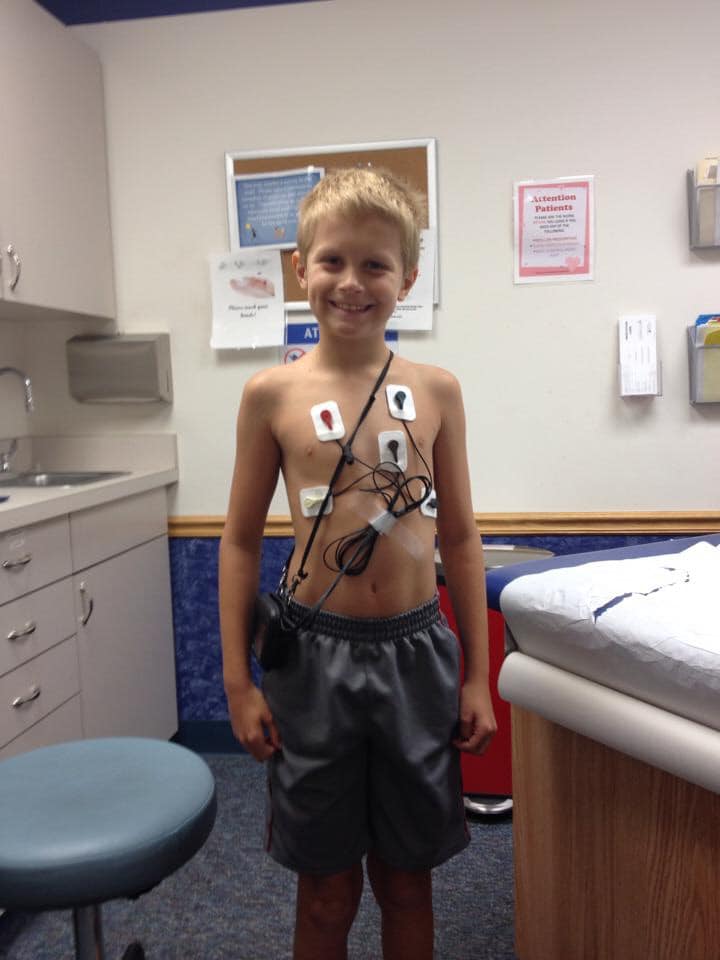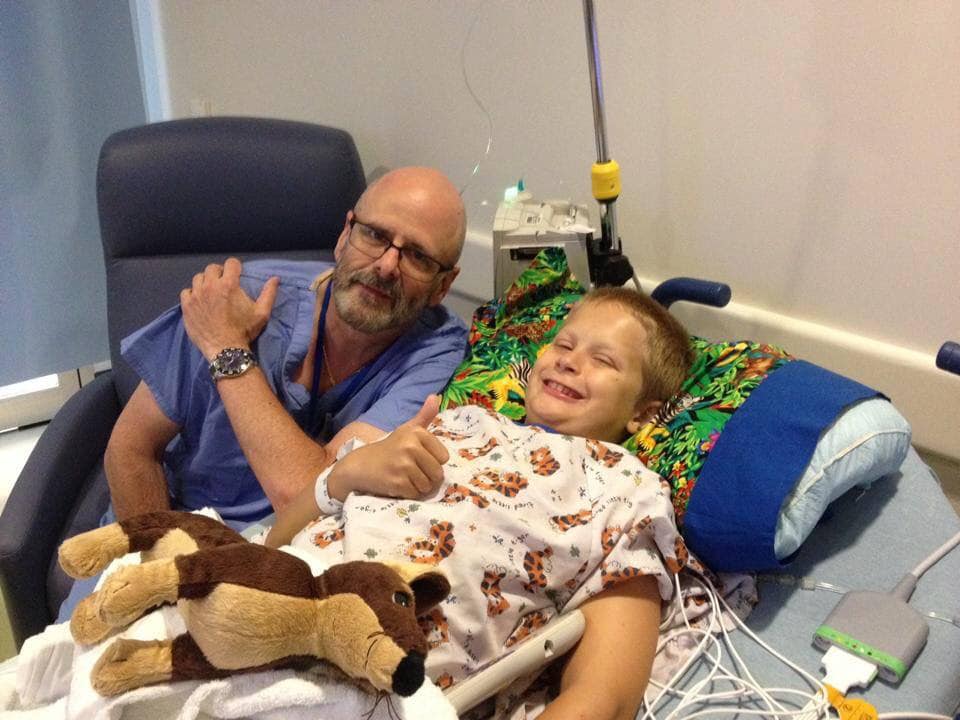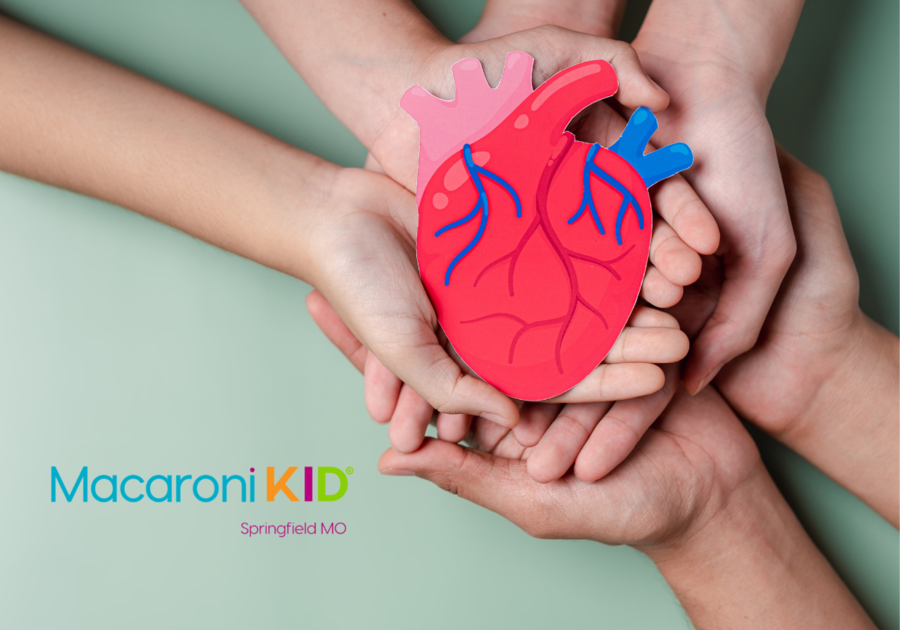
My oldest son, now 19 years old, was diagnosed with two Congenital Heart Defects (CHDs) after he was born and spent several days in the NICU prior to being discharged. I got a quick crash course in CHDs and did not know at the time how prevalent they are. 1 in 100. I had no idea. My son was diagnosed at 2 days old with a small Ventricular Septal Defect (VSD) & Wolff-Parkinson-White Syndrome (WPW) after my Obstetrician heard a faint murmur and referred him to the Pediatric Cardiologist. Upon discharge from the hospital, I was given a stethoscope to take home for monitoring his heart and taught how to apply ice to his face if he became tachycardic (a Vagal maneuver) until he could receive medical help, and told to monitor the color of his fingers, toes, and lips to be sure they weren't turning blue. I was completely terrified as a new mom to a baby with CHDs. I learned as much as I could, as quickly as I could. Over the years, he has experienced frequent cardiology appointments, yearly 24 hour Holter Monitors to track his heart rhythms, and he had his first cardiac stress test at 10 years old.
While my son's heart defects were serious, with one requiring surgery several years later, many families experience much more than we have and are faced with far more complex CHDs, which often require the need for lifesaving heart medications, open heart surgeries (in some cases MANY surgeries), heart transplants, and sadly, sometimes their children do not survive.
Years ago, my son's surgery to correct WPW would have been an open-heart procedure. But thanks to the advancements in pediatric cardiac technology and treatment, his heart defect was corrected successfully with outpatient catheter ablation.
Each of his little brothers had fetal echocardiograms in utero, to screen for any potential structural CHDs before they were born. They both have healthy hearts.
CHD Awareness Week is observed annually February 7th-14th, during American Heart Month.

About Congenital Heart Defects
Source: Children's Heart Foundation
- Congenital Heart Defects (CHDs) are problems present at birth that affect the structure and function of the heart, affecting 1 in 100 babies.
- Common examples of CHDs include holes in the inside walls of the heart and narrowed or leaky valves. In more severe CHDs, blood vessels or heart chambers may be missing, poorly formed, and/or in the wrong place.
- CHDs are America’s most common birth defect, affecting nearly 40,000 babies in the US each year. This equates to 1 child born every 15 minutes.
- Some CHDs can be identified during pregnancy with Level II ultrasounds and fetal echocardiograms, others are identified after birth or later in childhood.
- Advancement of treatment has helped many children with CHDs live longer and healthier lives, and into adulthood. It is estimated that 2-3 million people are living with CHD.
- Complex defects may require several surgeries and are never really "cured".
- Most causes of CHDs are unknown. Only 15-20% of all CHDs are related to known genetic conditions.
- A baby’s risk of having a CHD is increased by 3 times if the mother, father, or sibling has a CHD.

Signs & Symptoms of CHDs
Source: Congenital Heart Information Network
Some Congenital Heart Defects might not have signs or symptoms, but the following are indications that there may be a possible CHD.
Parents should be alert to the following symptoms in infancy:
- Tires easily during feeding
- Sweating around the head, especially during feeding
- Fast breathing when at rest or sleeping
- Pale or bluish skin color
- Poor weight gain
- Sleeps a lot - not playful or curious for any length of time
- Puffy face, hands, and/or feet
- Often irritable, difficult to console
Some children with CHDs may not have any symptoms until later in childhood. Things to look for include:
- Gets out of breath during play
- Difficulty "keeping up" with playmates
- Tires easily/sleeps a lot
- Change in color during active play or sports (looks pale or has a bluish tint around mouth and nose)
- Slow growth and weight gain/poor appetite
- Complains of chest pain and/or heart-pounding
If your child has two or more of these symptoms, talk to your pediatrician about a referral to a Pediatric Cardiologist, especially if you have a family history of CHDs.
For more information on Congenital Heart Defects, please visit the following sites:
- Children's Heart Foundation
- Mended Little Hearts
- March of Dimes
- American Heart Association
- Pediatric Congenital Heart Association
- Adult Congenital Heart Association



